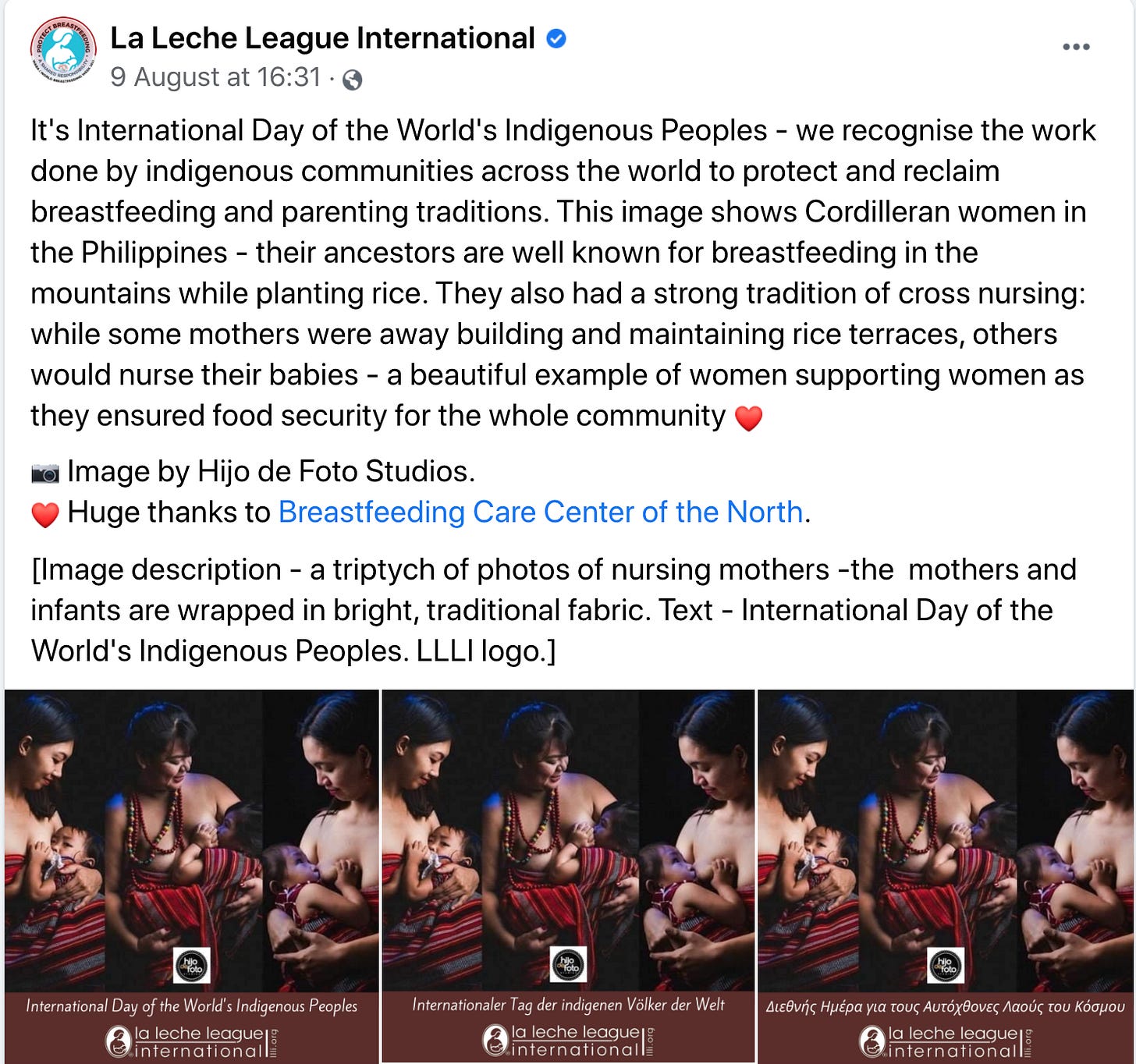Othering mothers
When 'mother' is only used for women other than ourselves.
In the accompanying text to this visual, LLLi has used mother 4 times and woman 3 times when speaking of brown women from an indigenous society. You’ll be hard pressed to find Western women offered the same courtesy these last few years by any of the established breastfeeding organisations, not only LLL.
In World Breastfeeding Week, 1-7 August 2021, LLLi used the word ‘mother’ 4 times and ‘woman’ 3 times in 17 separate posts. Its premiere post on 1st August obscured the word ‘mother’ with ‘those’.
Western mostly white women and Europeanised women in Latin America have been moved to the category of 'birthing people' and 'birthing parents'. Women are explicitly as well as implicitly deterred from naming their sexed being as ‘woman’ and ‘mother’. Sex neutral terms are coercively promoted, changing women and mother to simply ‘people’ and ‘parents’. Their unique status as the creators of life is obscured within the amorphous ‘people’. Who benefits from refusing to name mothers when discussing the biological functions that women are designed to do? How do women speak about their sexed experiences as women without using their specific words to reduce ambiguity and miscommunication? What are the unintended consequences of removing ‘mother’ from the vocabulary of women and the rest of society?
Women who are still closer to nature, in this case, indigenous women, who are are living in agrarian societies and women living closer to our hunter gatherer history, are still called ‘mother’. This word that ties humans to our sexed lives as bearers of young much like it does farm animals, such as the words ‘ewe’, ‘mare’, and ‘cow’, the sexed terms for the female of these species. The last two nominals are used to insult women as in 'brood mare' and 'milk cow'. Western women have been conditioned into hating our sexed selves, as these insults demonstrate.
These photos and the words that accompany them are reminiscent of the National Geographic magazines of the seventies and eighties, the nadir of breastfeeding in many Western countries. NatGeo was one of a few places where children in the West saw breasts used for their intended function in those decades. An unintended effect was to condition many in the West to feel like women in other parts of the world were somehow different from us: Those women live more like animals; we don’t. Breastfeeding was for ‘those countries’.
Increasingly, Western children and mothers only see the word ‘mother’ when it tokenises ‘primitive’ women. As if mothers are other people. They are not us. Mothers are others. Western women are encouraged to see themselves apart from the universal matrescence that leaps from this photo. Western women are being othered from the universality of motherhood.


